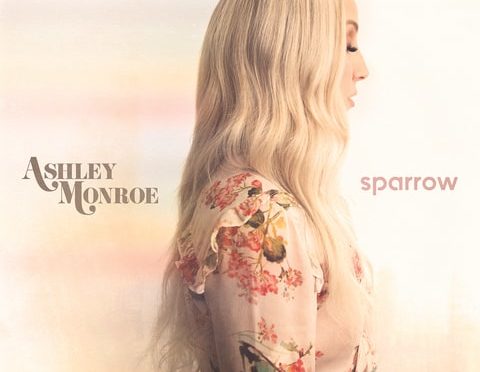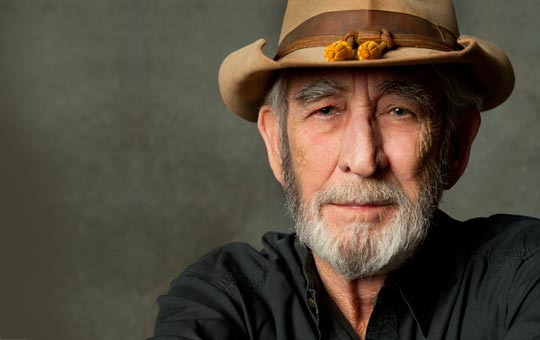Rating: 6.5/10
If any of you know me at all, you know I am an unashamed Ashley Monroe apologist and have been looking forward to new music from her almost since The Blade. With the release of the first single, “Hands on You,” came mixed feelings–I enjoyed the single, but I was hesitant about the more polished direction Monroe took sonically. I haven’t been overly impressed with any of the other pre-released tracks either, and what once was promising to be a great release was becoming a worrying one.
After several listens with this thing? Honestly, this is probably the most conflicted and divided I’ve been with myself about a project in a long while.
Monroe cites “good therapy” as being largely responsible for this record. She says that she finally chose to properly deal with the loss of her father at thirteen and what that was like for her family. That’s certainly evident from the opening lines of this album, as “Orphan” begins with the line from which the title of the album was inspired–“How does the sparrow know more than I? When a mother is gone, it learns how to fly.” “Orphan” is a ridiculous opener and one of the best songs of the year–and as for that polish which traditionally hasn’t been a Monroe characteristic, it actually works to perfection here, with elegant strings and piano accentuating the vocals and the story.
Monroe’s father comes up several more times on this album, often in its strongest moments. “Daddy I Told You” is another standout, again featuring some very tasteful piano and letting him know that she kept his name and still loves him. This one is just the kind of honest, thoughtful expression of emotion which defines country music. If I get asked to define it again anytime soon, I’m just going to cite this song. “Mother’s Daughter” is another track that echoes with the memories of her dad, as she sings about once being her father’s daughter but now having become more like her mother in his absence, or as the song says, “now that he’s no longer.” Sonically, this one is similar to something like “From Time to Time” from Ashley’s last album, and this one feels like a moment where the more polished sound works to her advantage.
Sensuality is also an important part of this record. I’m not sure how that plays into the therapeutic aspect of it for Monroe, but there is something liberating about the presence of both “Hands on You” and “Wild Love” here. This is the country genre, where women aren’t allowed to speak about desire at all, much less in this way, with lines like “pull my hair and call my name” (Wild Love”) and “I wish I’d have pushed you against the wall, locked the door in a bathroom stall” (“Hands on You.”) It’s not really apparent how little women actually sing about desire in country until you are presented with it here, and that shouldn’t be such a rare and shocking thing. I congratulated Shinyribs last year on introducing foot worship to country music; now I’d like to extend the same congratulations to Ashley Monroe for releasing these scandalous lines out into the world and especially on a major label.
I will say that while they both add value as individual songs, these two could have done with different melodies and production. “Wild Love” was released after “Hands on You,” and it’s the same tempo, same key, even the same strings in the background doing some of the same runs. I feel as if I’d have enjoyed “Wild Love” more if it had been released first, just as I enjoy “Hands on You” more currently. It’s intriguing because both of them stand well on their own, but they are so similar musically that they take away from one another on the album.
The major issue with this record can be boiled down to that incessant polish, and I hate to criticize him twice in a week, but Dave Cobb strikes again here. It’s not that Cobb did a bad job here, as the string sections and piano all over this album are generally really beautiful, even adding to some of the songs I’ve mentioned. They also work really well in “Hard on a Heart,” another of the standouts on the record. And Monroe said she wanted to work with him and wanted a countrypolitan feel on this album, so this problem has to do with her vision more than Cobb actually screwing it up.
but Dave Cobb is a terrible producer for Ashley Monroe. Vince Gill was a much better one, even on The Blade, where there was more polish than her previous records. The Blade still kept her personality, her emotion, that traditional voice as the focal points. With Sparrow, you’re often too drawn in or too distracted, depending on the song, by these orchestral arrangements to fully appreciate the words of Ashley Monroe. And it’s a shame because this is supposed to be the most personal record for Monroe to date–but instead of letting us in like Kacey Musgraves managed to do on her album, it feels like Monroe holds us at arm’s length, not quite letting us into the unique headspace she was in when she wrote these songs but rather staying in her own private moment. Her vulnerability is masked by cellos and piano and general overproduction. “Paying attention” is absolutely ruined by production; lyrically, that’s a great heartbreak song and one that Ashley could nail vocally, but she’s fighting to be heard over everything else so that she’s not even on pitch all the time. She also has pitch issues in “She Wakes me Up,” another ridiculously cluttered affair, and it’s not a coincidence. Ashley Monroe is one of the most gifted country vocalists around, but she’s being drowned out by all this until both her emotional delivery and her technical performance are suffering. It renders some songs boring and lifeless, some of which might have been better had Monroe and her lyrics been allowed to shine more. I mean, I don’t think “Rita” could have been helped by anything, as that’s definitely the most boring track Ashley has ever released, but it’s the exception here, and the point still stands.
I wanted to like this more than I do, and as many issues as I have with this album, I probably do enjoy it more than my words may imply. The standouts I have listed are just that–they’re not the few tolerable or decent tracks on an otherwise terrible record, they’re gems that stand as proud additions to Ashley Monroe’s discography. A brilliant song like “Orphan” proves that this more polished, countrypolitan style can work for Monroe at times, and it’s a song like that which really makes the boring, overproduced filler on this record all the more disheartening. Overall, this style doesn’t suit Monroe, and especially not on what’s meant to be a personal, intimate record. Here’s hoping Vince Gill will come back to produce her next project. Cherry-picking is not something I normally condone, but it’s appropriate here because this album has some treasures; unfortunately, they’re mixed in with filler, and more importantly, I don’t see this record making new Ashley Monroe fans. For those like me, already unapologetic fans, it does have the potential to grow–the problems are less with Ashley herself and more with the style–but I don’t see Sparrow being a defining record for her, even if it symbolizes a defining moment for Monroe personally.


